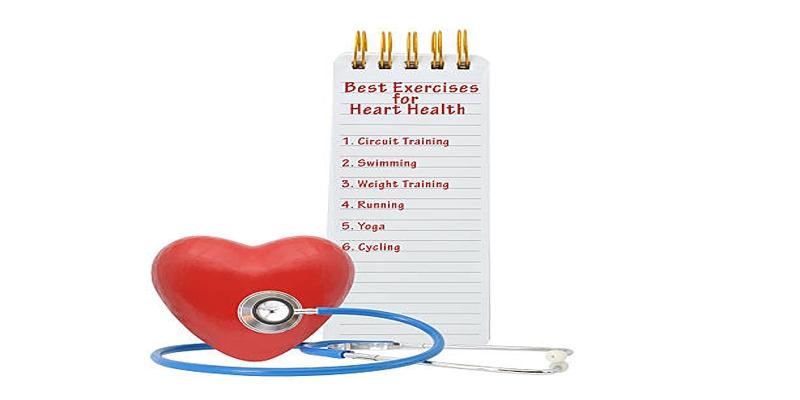10 Key Numbers That Define Ideal Heart Health
Advertisement
Maintaining a healthy heart is essential for living a vibrant and active life. The heart is one of the most vital organs, tirelessly working to pump blood and oxygen throughout the body. Unfortunately, heart disease is one of the leading causes of death worldwide, often stemming from preventable lifestyle factors. Knowing and understanding certain key health metrics can help individuals assess their heart health and take steps to improve it. These numbers act as a measurable guide to evaluate risk factors and make informed decisions. Let's explore these numbers in detail, how to track them, and the lifestyle adjustments necessary for a healthier heart.
1.Blood Pressure
Hypertension is considered to be an essential barometer of heart health. Describes the pressure of the blood against the walls of the arteries when the heart beats, given in two figures. The first one is systolic pressure which gives the pressure at the time that the heart is beating, and the second one is the diastolic pressure which gives the pressure when the heart is relaxed. Normal blood pressure or healthy level of blood pressure is usually one that ranges approximately 120/80 mmHg.
High blood pressure limits the heart’s ability to pump blood and may cause heart attack or stroke while low blood pressures makes one faint. The maintenance of an appropriate level of blood pressure is not difficult; it simply involves monitoring or checking on your blood pressure; besides this, observing good health behaviors such as avoidance of using salt and observing stress.
2.Cholesterol Levels

Cholesterol is a substance that is carried in the bloodstream and necessary for the health of our cells; High cholesterol levels are dangerous to the overall heart health. Low-Density Lipoprotein or LDL commonly referred to as the “bad cholesterol’ including Atherosclerotic Cardiovascular Disease (ASCVD) risk. At the same time, high density lipoprotein (HDL) known as ‘good’ cholesterol clears LDL from the blood.
So, total cholesterol should not go above 200 mg/Dl, LDL goes below 100 mg/Dl and HDL should be above 40-60 mg/Dl. Dietary fiber plus moderate exercise are great tools when it comes to sustaining the right cholesterol level.
3.Body Mass Index (BMI)
Body Mass Index is a numerical representation of body fat based on an individual's weight relative to their height. A healthy BMI typically falls between 18.5 and 24.9. While it is not a perfect indicator of health, a BMI outside the healthy range may correlate with an increased risk of heart disease, diabetes, and other chronic conditions. Adopting a balanced diet and engaging in regular exercise can help achieve and maintain a healthy BMI.
4.Blood Sugar Levels
Monitoring blood sugar levels is crucial for understanding heart health, especially as diabetes is a significant risk factor for cardiovascular disease. Normal fasting blood sugar levels should fall between 70 to 100 mg/dL. Elevated blood sugar levels over time can damage blood vessels and nerves associated with the heart. Eating a balanced diet, avoiding excessive consumption of added sugars, and staying active are essential strategies for maintaining healthy blood sugar levels.
5.Waist Circumference
Waist circumference is a simple but informative measure of cardiovascular risk. Excess abdominal fat has been linked to higher risks of heart disease, type 2 diabetes, and metabolic syndrome. For optimal heart health, men are advised to keep their waist circumference under 40 inches, while women should aim to stay below 35 inches. Consistent exercise, particularly activities that target visceral fat, can aid in reducing waist size and increasing overall health.
6.Resting Heart Rate
Resting heart rate, measured in beats per minute (bpm) while at rest, is an indicator of cardiovascular efficiency and fitness levels. A typical resting heart rate for adults ranges between 60 and 100 bpm, with well-conditioned athletes often having even lower rates. A lower resting heart rate generally suggests better physical fitness and a well-functioning heart. Activities like aerobic exercises and mindfulness practices can help lower resting heart rate over time.
Physical Activity Level
Staying active is one of the most effective ways to strengthen your heart and improve overall health. The American Heart Association recommends at least 150 minutes of moderate aerobic exercise or 75 minutes of vigorous activity each week. Regular exercise boosts cardiovascular endurance, lowers blood pressure, and helps you maintain a healthy weight.
Whether it’s walking, running, cycling, or swimming, these activities not only enhance your physical well-being but also support mental health, paving the way for a healthier, happier life. Make movement a priority—your heart will thank you!
8.Sleep Duration
Sleep is often overlooked as a vital component of heart health. Adults should aim for 7-9 hours of quality sleep each night. Sleep deprivation can contribute to high blood pressure, increased stress hormone levels, and poor heart function. Establishing a consistent sleep schedule, reducing screen time before bed, and creating a calming bedtime routine can promote better sleep hygiene and, in turn, benefit heart health.
9.Diet and Nutrition Metrics
A heart-healthy diet is fundamental to maintaining optimal heart function. Focus should be on nutrient-rich foods, such as fruits, vegetables, whole grains, lean proteins, and healthy fats like those found in fish and nuts. Reducing the intake of processed foods, trans fats, and added sugars is equally important. The Mediterranean and DASH (Dietary Approaches to Stop Hypertension) diets are often recommended for promoting heart health. Paying attention to portion sizes and balancing calorie intake with physical activity are also crucial dietary considerations.
10.Smoking Status
Smoking significantly increases the risk of heart disease, causing damage to blood vessels and reducing oxygen levels in the blood. Quitting smoking can lead to immediate and long-term improvements in heart health. Even exposure to secondhand smoke should be avoided, as it poses similar risks. There are numerous resources and programs available to support smoking cessation, such as counseling, nicotine replacement therapies, and supportive communities.
How to Track These Numbers

Using accessible tools and techniques is key to accurately monitoring these health indicators. Home devices like blood pressure monitors, fitness trackers, and glucose meters allow individuals to track their metrics regularly. Additionally, routine check-ups with healthcare providers ensure accurate readings and professional guidance. Frequency varies for different metrics; for example, blood pressure should be checked regularly, while cholesterol levels may only need testing annually or semi-annually, depending on risk factors.
Conclusion
Heart health is a vital aspect of overall wellness and requires mindful attention to daily choices. Incorporating nutrient-rich foods like fruits, vegetables, whole grains, and lean proteins promotes a balanced diet that benefits the cardiovascular system.Staying physically active with moderate to vigorous exercise helps maintain a healthy heart and lowers the risk of chronic conditions. Taking proactive steps, adhering to medical advice, and staying informed are key strategies for preserving and enhancing cardiovascular well-being in the long term.
Advertisement












